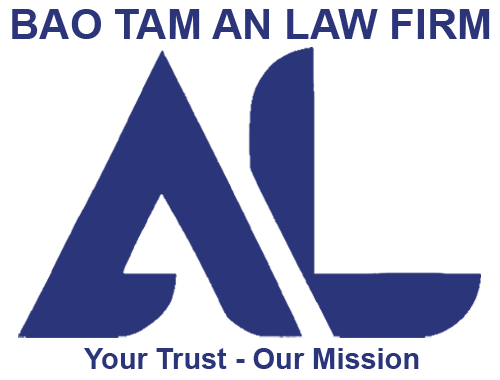Commercial Law Essentials for Foreign Businesses Operating in Vietnam
Vietnam’s burgeoning economy and strategic position within Southeast Asia make it an attractive destination for foreign investments and businesses looking to expand into new markets. However, navigating the commercial legal landscape can be complex for foreign enterprises unfamiliar with local regulations and practices. Understanding the essentials of commercial law is vital for foreign businesses aiming to operate successfully in Vietnam. This article provides an overview of key legal considerations, frameworks, and best practices for foreign companies engaging in commercial activities in Vietnam.
The Legal Framework for Commercial Activities in Vietnam
Foreign businesses entering the Vietnamese market must familiarize themselves with several key laws and regulations governing commercial activities. The primary legal frameworks include:
1. The Law on Enterprises
The Law on Enterprises (LOE) governs the establishment, organization, and operation of businesses in Vietnam. It covers various aspects relevant to commercial operations, including:
- Types of Business Entities: Understanding the registration and regulation of different business structures such as limited liability companies (LLCs), joint-stock companies (JSCs), partnerships, and foreign-invested enterprises (FIEs).
- Registration Requirements: Outlining the processes foreign businesses must follow to register their operations with the local authorities, including obtaining the Investment Registration Certificate (IRC) and the Enterprise Registration Certificate (ERC).

2. The Law on Investment
The Law on Investment regulates foreign investments in Vietnam, providing guidelines on investment procedures, incentives, and restrictions. Important aspects to consider include:
- Investment Forms: Familiarity with the different forms foreign investments can take, such as joint ventures, wholly foreign-owned enterprises, and business cooperation contracts (BCCs).
- Approval Processes: Understanding the procedures for obtaining the necessary approvals, including the feasibility study and environmental impact assessments.
- Incentives and Restrictions: Awareness of investment incentives for sectors that the government wishes to promote, as well as any restrictions on industries that may require special licenses.
3. Commercial Law
Vietnam’s Civil Code and Commercial Law govern commercial transactions, including the sale of goods, provision of services, and business operations. Key provisions include:
- Contractual Obligations: Understanding the formation, execution, and termination of contracts, along with the rights and responsibilities of parties involved.
- Consumer Protection: Ensuring compliance with regulations designed to protect consumers’ rights, including product safety and fair marketing practices.
- Dispute Resolution: Familiarity with dispute resolution mechanisms, including mediation, arbitration, and litigation, that may arise from commercial contracts.
Commercial Practices and Compliance
When operating in Vietnam, foreign businesses should adhere to local customs, practices, and legal requirements to ensure compliance and avoid disputes. Here are key commercial practices:
1. Conducting Due Diligence
Conducting thorough due diligence before entering any commercial arrangement is essential. This process involves researching potential partners, suppliers, and customers to assess their reputation, financial stability, and compliance with regulations.
- Background Checks: Examine the legal and financial history of partners to mitigate potential risks associated with fraud or non-compliance.
- Legal Compliance: Assess whether potential partners adhere to relevant laws, including labor laws, tax obligations, and regulatory requirements.
2. Drafting Clear Contracts
Well-drafted contracts lay the foundation for successful commercial relationships. Key elements to include in contracts are:
- Clear Terms: Clearly outline the rights and obligations of each party, including payment terms, delivery dates, and warranties.
- Dispute Resolution Clauses: Include provisions detailing the methods for resolving disputes, such as mediation or arbitration, to provide clarity on the process in the event of disagreements.
- Governing Law: Specify the governing law applicable to the contract, which helps determine how legal issues will be resolved.
3. Understanding Taxation
Foreign businesses must be familiar with Vietnam’s tax laws, including corporate income tax, value-added tax (VAT), and other local taxes. Important points to consider are:
- Corporate Income Tax: Foreign businesses typically pay a corporate income tax rate of 20%, although specific industries may benefit from preferential rates.
- Value-Added Tax (VAT): Understanding the VAT rates applicable to goods and services, which generally range from 0% to 10%, is essential for pricing strategies.
- International Tax Treaties: Being aware of tax treaties between Vietnam and other countries can help businesses optimize their tax obligations and avoid double taxation.

4. Employment and Labor Law
Understanding labor laws in Vietnam is critical for foreign companies with employees in the country. Key considerations include:
- Labor Contracts: Employment contracts must comply with Vietnam’s Labor Code, specifying employee roles, wages, benefits, and termination procedures.
- Workplace Rights: Familiarity with employee rights, including working hours, leave entitlements, and workplace safety, is necessary to ensure compliance and maintain a positive work environment.
- Social Insurance: Companies are required to register employees for social insurance, which includes health insurance, unemployment insurance, and pensions.
Best Practices for Foreign Businesses in Vietnam
To navigate the commercial legal landscape effectively, foreign businesses should consider adopting best practices:
1. Engage Local Legal Expertise
Consulting with legal professionals experienced in Vietnamese commercial law is essential. Local legal counsel can provide valuable insights into navigating regulatory requirements, drafting contracts, and addressing compliance issues.
2. Foster Relationships with Local Partners
Building strong relationships with local partners, suppliers, and stakeholders can facilitate a smoother entry into the market. Collaborating with Vietnamese entities can provide cultural insights, access to networks, and resources that may enhance business operations.

3. Stay Informed About Regulatory Changes
Vietnam’s legal landscape is continually evolving. Staying informed about changes in commercial law and regulations can help businesses adapt to new requirements and avoid legal pitfalls.
4. Implement Robust Compliance Programs
Establishing internal compliance programs that align with Vietnamese laws and regulations can help businesses mitigate risks associated with non-compliance. Regular training for employees on legal obligations and best practices is also beneficial.
5. Navigate Dispute Resolution
Understanding available dispute resolution mechanisms and promoting amicable resolutions can preserve business relationships and avoid lengthy litigation. Engaging legal counsel to draft comprehensive dispute resolution clauses can further clarify processes.
Conclusion
Navigating the commercial law landscape in Vietnam presents both challenges and opportunities for foreign businesses. Understanding the essential legal frameworks, engaging in thorough due diligence, and adhering to local practices are crucial for success in this diverse market. By prioritizing legal compliance and seeking expert legal guidance, foreign companies can protect their interests and position themselves for growth in Vietnam’s rapidly evolving economic environment. Establishing a strong legal foundation not only enhances operational success but also fosters trust and credibility within the local business community.
